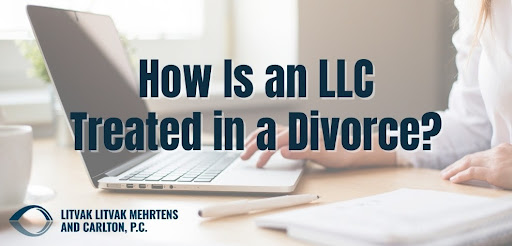According to the U.S. Census, both the marriage and divorce rates have decreased over the last 10 years from 9.7 divorces per 1,000 women in 2009 to 7.6 divorce per 1,000 women in 2019. With these numbers in mind, divorce is still a daily occurrence among Americans. However, what makes divorce even more painful is an attorney potentially uncovering something that paints you in an unfavorable light. At Litvak Litvak Mehrtens and Carlton, we want to make sure you know what can be used against you in a divorce so that you can have the smoothest divorce possible. For more information, call us today at 303-951-4506.
Is Colorado a No-Fault Divorce State?
In short, yes Colorado is a no-fault divorce state. Basically, this means that Colorado courts don’t blame either the husband or wife for causing the marriage to end. Additionally, the husband and the wife don’t have to prove what caused the marriage to end. The only grounds necessary to end a divorce in Colorado is that the marriage is irretrievably broken with no hope of repair. Because the spouses don’t have to establish marital misbehavior for the court to approve the divorce, no-fault divorce is less expensive and time-consuming than fault-based divorce.
What is a “Fault” Divorce?
Meanwhile, in a “fault” divorce state, a spouse must prove that the other spouse caused the marriage to end through:
- Emotional and/or physical abuse
- Cheating on their spouse
- Abandoning their spouse
- Insanity that treatment didn’t improve
- Being in prison for years
- Being physically unable to engage in sexual activity that a spouse didn’t confess before the marriage
How Can a Spouse Prevent a “Fault” Divorce?
In Colorado, you can’t stop a no-fault divorce from happening. But in a “fault” state, a spouse can claim that the reasons for divorce are false. Alternatively, a spouse may accept fault but offer an explanation for their actions including the ones listed below:
- Condonation basically means that one spouse approved of the other spouse’s poor behavior during the marriage. For example, if a husband files for divorce because the wife cheated on him, the wife could say that he condoned the adultery.
- Recrimination is basically when the spouse who is supposedly at-fault says to the other spouse: “you too.” So if the wife accuses the husband of cheating, the husband could do the same thing and accuse the wife of cheating too. Recrimination is an old aspect in divorce law that very few states accept now.
- Connivance happens when one spouse sets up the other spouse to make a mistake. For example, if a wife sues her husband for divorce, alleging that he has committed adultery, the husband may claim that she set up his activities as a defense.
- Provocation happens when one spouse encourages the other to make a mistake. For example, if a wife cheats on and abandons the husband, she could claim that the husband encouraged her to cheat on and abandon him.
- Collusion is a common defense for spouses who don’t have the option for an at-fault divorce. Collusion is basically when a husband or wife creates a situation that would qualify them for a “fault” divorce. For example, one spouse makes it look like the other spouse is having an affair.
What Can Be Used Against You in a Divorce?
It’s important to protect yourself as much as possible during both fault and no-fault divorces. If you want everything to move as smoothly and quickly as possible, it’s crucial to understand what can be used against you in a divorce.
Excess Spending
No matter how badly you want to “get back” at your spouse during your divorce, it’s never a good idea. It will only rack up a more expensive, lengthy divorce for both of you. Spouses commonly try to lash out at each other by spending the money that will a jury will split between them. Doing this will punish you more than it will punish your spouse because all of your financial information is traceable. This intentional excess spending is often called marital waste.
Marital Waste
Marital waste is basically when one spouse intentionally destroys marital assets. A spouse can intentionally destroy marital assets in many ways, including:
- Spending marital money on extramarital items
- Sending marital money to another person before fully separating from a spouse
- Selling marital assets for less than they’re worth
- Spending too much marital money on business affairs
- Gambling marital money
Hidden Assets
Similarly to spending marital assets, hiding marital money or assets can easily make a divorce more complicated. If you hide anything during a divorce, chances are that you can’t hide it for long because of how much paperwork both spouses must provide in a divorce. Anything you do to your spouse out of spite is traceable and can backfire.
Romantic Relationships
Starting a new romantic relationship before your divorce concludes can definitely backfire, especially if you have a child custody case.
If you don’t have a child custody case on the line, your spouse could use your new relationship as further proof that you’re irresponsible or that you’re adulterous. However, if you do have a child custody case, your new partner will be thoroughly investigated because they could become a new parental figure for the kids. Additionally, starting a new romantic relationship during complicated divorce can be very emotionally confusing for kids. A jury will also consider this factor when determining which parent will be the healthiest – emotionally, physically, financially, etc. – for a child.
Social Media
If you’re enduring a lengthy and complicated divorce, you may want to turn to social media to vent about your thoughts and feelings. Or maybe you just want to post the highlights of your life outside of your divorce. However, this isn’t a good idea because anything you say on social media can backfire in a divorce. In fact, the American Academy of Matrimonial Lawyers claims that Facebook is the best source for divorce evidence.
For example, if you claim that you’re not in a new romantic relationship during your divorce but you frequently post pictures or status updates about a new partner, your chances of getting a favorable outcome will decrease. Additionally, it’s not just what you post. What you say in private Facebook, Instagram, Snapchat, and Twitter messaging can also be used against you. Social media is just as traceable as money. Attorneys can investigate and act on anything you say publicly or privately on the internet.
Texts and Emails
Similarly to social media posts and messaging, texts and emails are also easily traceable and can be used against you. It’s important to note that deleting texts, emails, social media messages, and social media posts won’t protect you if you’ve overshared or contradicted yourself. Modern day technology can recover all of these messages and posts.
Restraining Orders
If your spouse files a restraining order against you during the divorce (or even before the divorce), this definitely won’t bode well for you. Restraining orders can protect a spouse against:
- Physical or sexual abuse
- Threats
- Being stalked
- Being harassed
If your spouse filed a restraining order against you for any of these reasons, your chances of receiving a favorable outcome in your child custody case and your divorce will be low.
How Can I Protect Myself During a Divorce?
After reading through what can be used against you in a divorce, you may be asking yourself: so what can I do during a divorce to protect myself?
Hire a Divorce Attorney
Having an attorney during a divorce isn’t required. However, having an attorney is necessary especially if a couple can’t agree on important issues. Additionally, an attorney can expedite the entire process while working to make it as painless as possible.
Cancel All Joint Credit Cards
Notify your spouse that you’re cancelling all joint credit cards and then do it. This can save both of you thousands of dollars in joint credit card debt. Additionally, this will protect you from accruing even more credit card debt if your spouse decides to lash out through excessive spending.
Keep Track of Your Assets
Before a divorce even begins, it’s important to keep records of and protect all of your most valuable assets. This includes keeping financial records of bills and debts along with records of your jewelry, cash, silverware, and other valuables. So if you notice any assets going missing throughout your divorce, you can prove it through your records.
Don’t Sign Anything Before Your Attorney Says So
You shouldn’t sign anything provided by your spouse until you have a chance to consult with an attorney. It’s possible that you’ll lose a property or custody dispute if you do so. Additionally, you might be signing something that your lawyer won’t be able to amend afterwards.
Be Careful With What You Post and Who You Message
Remember, even if you delete messages or posts, an attorney can still recover them and use them against you. If you need to vent about your divorce, talk to a loved one in person instead of messaging someone or posting something.
Call a Denver Divorce Attorney Today
It’s crucial to have an experienced Denver divorce attorney on your side to have the smoothest, quickest divorce possible. Not only do Denver divorce attorneys at Litvak Litvak Mehrtens and Carlton want to help you avoid doing what can be used against you in a divorce, we can help with child custody cases too. Call us today at 303-951-4506 to schedule a consultation.






